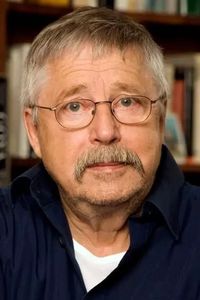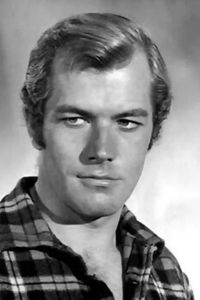Karl Wolf Biermann, a celebrated German singer-songwriter, poet, and erstwhile East German dissident, made his entry into the world on November 15, 1936, in the vibrant city of Hamburg, Germany. His mother, Emma (née Dietrich),was an ardent Communist Party activist, her dedication to the cause unwavering. Meanwhile, his father, Dagobert Biermann, toiled on the Hamburg docks, his occupation a testament to his industrious nature.
It was a devastating turn of events when the Nazi regime, notorious for their brutal atrocities, forcibly removed Biermann's father from his life, banishing him to the notorious Auschwitz concentration camp, where he ultimately met a tragic and untimely demise on February 22, 1943.
This senseless and heart-wrenching loss, however, had a profound impact on Biermann, as his father's fearless defiance in the face of the Nazi regime's tyranny instilled in him a profound sense of social justice and a burning desire to resist oppression in all its forms, a resolve that would guide him throughout his life.
Biermann's formative years were characterized by a profound affinity for the Communist Party, as he actively participated in the Free German Youth organization, a prominent youth movement in East Germany. This affiliation was further solidified when he was selected to represent the Federal Republic of Germany at the inaugural national meeting of the Free German Youth in 1950, a testament to his commitment to the ideals of socialism.
As a young man, Biermann's sense of idealism and social consciousness drove him to make a bold decision, emigrating from West to East Germany at the tender age of 17. This courageous move was motivated by his fervent desire to contribute to the creation of a more just and equitable society, a goal that he believed could only be achieved through the principles of communism.
Biermann's academic journey led him to the esteemed Humboldt University of Berlin, where he embarked on a multifaceted educational path, delving into the realms of political economics, philosophy, and mathematics.
During this formative period, he held the esteemed position of assistant director at the renowned Berliner Ensemble, serving from 1957 to 1959.
Subsequently, Biermann redirected his academic focus, opting to concentrate on the intricacies of philosophy and mathematics under the mentorship of the erudite Wolfgang Heise.
In the year 1960, a pivotal moment in the life of Biermann occurred, as he had the privilege of encountering the renowned composer Hanns Eisler, an individual who would go on to play a crucial role in his life as a mentor and protector. Eisler's guidance and influence had a profound impact on Biermann, as he began to explore his creative talents by writing poetry and songs, which were subsequently championed by the East German cultural elite.
Under Eisler's watchful eye, Biermann's artistic abilities flourished, and his work was met with great acclaim. However, this period of growth and success was tragically cut short when Eisler passed away in 1962, leaving Biermann without the key support and guidance that had been essential to his development as an artist.
As the years went by, Biermann's artistic endeavors persisted, and in 1961, he took the initiative to establish the Berliner Arbeiter-Theater, a groundbreaking institution that brought together artists and intellectuals from various backgrounds. Despite its promising start, the theater unfortunately ceased to exist in 1963.
Bertolt Biermann, a steadfast adherent to the principles of communism, found himself increasingly at odds with the prevailing ideologies within the East German regime. His unyielding commitment to his beliefs ultimately led to a rift with the ruling powers, as evidenced by his disqualification from the Socialist Unity Party of Germany (SED) in 1963, a decision that was made without providing any explicit justification.
It wasn't until the era of political transformation, commonly referred to as the Wende, that the truth behind Biermann's rejection from the SED came to light. Through the declassification of his Stasi file, it was revealed that the reviewers had concluded that he was a habitual user of stimulants, a finding that contributed to his exclusion from the party.
Bülent Biermann, a multifaceted individual, has consistently been propelled by an unrelenting fervor for justice, an innate flair for creativity, and an unshakeable dedication to his principles.
As a renowned singer-songwriter, poet, and erstwhile East German dissident, Biermann's remarkable journey has left an indelible mark on the world, a testament to his unwavering commitment to his ideals and unrelenting pursuit of artistic expression.
Throughout his remarkable life, Biermann has been driven by a profound sense of purpose, his creative talents and poetic voice serving as powerful instruments for social commentary and a beacon of hope for those seeking freedom and justice.
As a testament to his enduring legacy, Biermann's work continues to captivate and inspire new generations, his unique blend of music, poetry, and activism serving as a powerful catalyst for positive change and a reminder of the transformative power of art to bring about meaningful social and political transformation.
In the years that have followed, Biermann's work has remained a powerful and poignant reminder of the importance of artistic expression, social activism, and the unyielding pursuit of justice and freedom, his remarkable legacy a testament to the enduring power of the human spirit.











